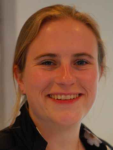Balancing appointments and walk-ins in ambulatory care services

Abstract
This talk is directed to outpatient clinics and diagnostic facilities that facilitate walk-in service, to improve accessibility, to offer more freedom for patients to choose their preferred time and date of visit, and to allow patients to visit multiple care providers on one day. It shows the advantages of offering combined walk-in and scheduled service.
Outpatient and diagnostic testing clinics have long provided patients with appointments, to match capacity with demand. However, the main disadvantage of a pure appointment policy is that substantial access delays can be created. The research described in this talk explores the viability of a walk-in based policy: a mixed strategy of walk-in and appointments. We present a stochastic method that finds the mixed strategy that achieves an optimal balance between the benefits and drawbacks of a pure appointment and a pure walk-in policy. The optimal policy successfully counterbalances the non-stationary nature of walk-in arrivals at both the daily and weekly levels, by prescribing how many appointment slots to reserve and at which times.
Reference
- Kortbeek, N. and Zonderland, M.E. and Boucherie, R.J. and Litvak, N. and Hans, E.W. (2011) Designing cyclic appointment schedules for outpatient clinics with scheduled and unscheduled patient arrivals. Memorandum 1968, Department of Applied Mathematics, University of Twente https://research.utwente.nl/en/publications/designing-cyclic-appointment-schedules-for-outpatient-clinics-wit-2
Biography
Maartje Zonderland was born in Warnsveld (the Netherlands) on January 24, 1982. She obtained her VWO diploma, with an International Baccalaureate Certificate in English, at the Lorentz College in Arnhem in 1999. In 2007, Maartje completed her studies at the University of Twente having received B.Sc. degrees in Industrial Engineering & Management and Applied Mathematics, and an M.Sc. degree in Applied Mathematics. She carried out her final master’s project at Leiden University Medical Center, which lead to an appointment as a staff consultant at this hospital. Additionally, Maartje started with her Ph.D. studies at the University of Twente, supervised by prof. dr. Richard Boucherie and dr. Fred Boer. In the autumn of 2010, Maartje spend two months at the Centre for Research in Healthcare Engineering, University of Toronto in Canada to work with prof. Michael Carter. She returned to Canada in the summer of 2011, this time to work with prof. David Stanford at the University of Western Ontario, London. Her Ph.D. research culminated in January 2012 with a dissertation titled ‘Curing the Queue’. Currently, Maartje works as a post-doctoral researcher at CHOIR. She also works (self-employed) as a healthcare logistics consultant in hospitals, nursing homes and GP practices.
